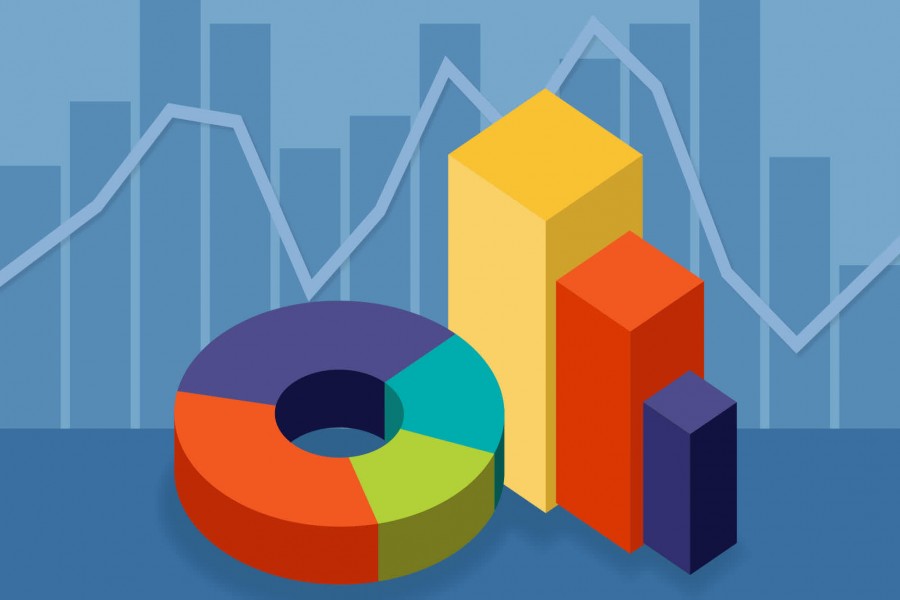Bangladesh's economic outlook revised downward for next three fiscals
Factors like poor investment, political uncertainty to blame

Published :
Updated :

The interim government has cut the country's macroeconomic outlook on a large scale trimming down the economic-growth targets for the next three fiscal years up to FY2028.
Economists have, however, termed the revised economic growth targets and other macro-economic outlook as 'unrealistic' amid the prevailing political instability.
The government has slashed the gross domestic product (GDP) growth target by 1.50 percentage points for the next fiscal year (FY) 2025-26.
The prevailing sluggish economic trend has affected the country's economic growth perspectives, which prompted the government to cut the overall economic outlook, according to the Ministry of Finance (MoF) officials.
The economic growth outlook has been revised downward to 5.50 per cent for the FY2026 from that of 7.0 per cent, which was projected in last MTMPS during the ousted Sheikh Hasina government's regime.
Similarly, the GDP growth target has also been trimmed down to 6.0 per cent for the FY2027 in the latest MTMPS from that of 7.25 per cent in the previous MTMPS.
For the FY2028, the interim government has cut the GDP growth target to 6.50 per cent in the latest MTMPS from that of 7.50 per cent in the previous MTMPS.
Meanwhile, Professor Muhammad Yunus-led interim government has also slashed down the country's economic growth outlook at 5.0 per cent for the outgoing FY2025 due to economic slowdown.
According to the recent provisional estimation of the Bangladesh Bureau of Statistics (BBS), the country's economy grew at the rate of 3.97 per cent for the current FY2025.
However, Finance Advisor Dr Salehuddin Ahmed in his budget speech on June 2 last said although the BBS's provisional GDP growth rate was estimated at 3.97 per cent the final figure would be higher than that.
Bangladesh economy has been struggling over the last couple of years, especially during the Sheikh Hasina's regime, due to a drastic fall in the country's foreign exchange reserve, higher inflationary pressure, poor investment growth, grafts in financial sector, massive corruptions and money laundering.
According to the BBS's latest provisional data, the investment-GDP ratio declined to 30.70 per cent in the FY2024 and 29.38 per cent in the outgoing FY2025 from that of 30.95 per cent in the previous FY2023.
The export of goods and services to GDP also showed downward trends in the last couple of years as it declined to 10.46 per cent in the FY2024 and 11.36 per cent in the outgoing FY2025.
Two years ago, the export-GDP ratio was estimated at 12.88 per cent in the FY2022 and 13.16 per cent in the FY2023, the BBS statistics revealed.
According to former World Bank Lead Economist Dr Zahid Hussain, investment is considered as the main growth engine but its growth is on the negative trajectory.
"New investors are not coming. Imports of capital machinery and raw materials still remain sluggish. The country's political uncertainty is not over. So, it is hardly possible for attain a 5.0 per cent GDP growth for this year," he told the FE.
Given the prevailing scenario, it anticipated that a sluggish economic might persist in next FY2026 and the achievement of the targeted 5.5 per cent economic growth would be difficult, Dr Hussian added. About the country's ongoing political situation, he said: "Almost every week, there protests take place on the streets. The people cannot move. So, how the economy will run and why the investors will come here?" he said.
kabirhumayan10@gmail.com


 For all latest news, follow The Financial Express Google News channel.
For all latest news, follow The Financial Express Google News channel.